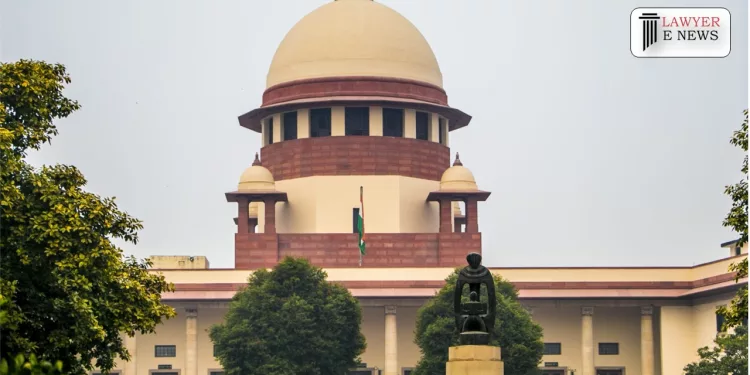“Conviction Altered from Section 302 to 304 Part II IPC: Supreme Court Rules ‘Single Assault Without Premeditation Not Sufficient to Infer Intention to Kill'”

In a recent judgment, the Supreme Court of India, presided over by Justice S. Ravindra Bhat and Justice Aravind Kumar, altered the conviction of the appellant from Section 302 IPC to Section 304 Part II IPC. The Court observed that a “single assault by the appellant coupled with the duration of the entire period having occurred for about 2-3 minutes would not be sufficient to infer that he had the intention to kill the deceased.”
The appellant, N. Ramkumar, had appealed against the judgment of the Madurai bench of Madras High Court, which had upheld his conviction under Sections 450 & 302 IPC. The case revolved around a love affair gone awry, leading to the death of the deceased, Sangeetha.
Supreme Court meticulously examined the evidence, including medical reports and witness testimonies, before arriving at its decision. “The post-mortem report indicated that the deceased died due to a head injury,” the judgment read. The Court also considered the testimonies of the deceased’s mother and a neighbor, who had witnessed the events leading to the tragic incident.
In its legal analysis, the Court cited previous judgments, including the case of Deepak v. State of Uttar Pradesh, to emphasize that a single assault without premeditation could lead to a conviction under Section 304 Part II IPC. The Court also referred to a recent judgment in the case of Anbazhagan vs. The State to elaborate on the legal principles for determining the intention or knowledge of the accused.
Supreme Court concluded that “the appellant’s act was not premeditated and occurred in the heat of the moment.” It further noted that the appellant and the deceased were in love, and the altercation was due to a change in their relationship. “Had there been any intention to do away with the life of the deceased, obviously the appellant would have come prepared and would have assaulted the deceased with pre-meditation,” the judgment stated.
Apex Court altered the conviction to one under Section 304 Part II IPC and sentenced the appellant to the period already undergone. He will be released forthwith if not required in any other case.
Date of Decision: September 06, 2023
RAMKUMAR vs THE STATE REP. BY INSPECTOR OF POLICE






